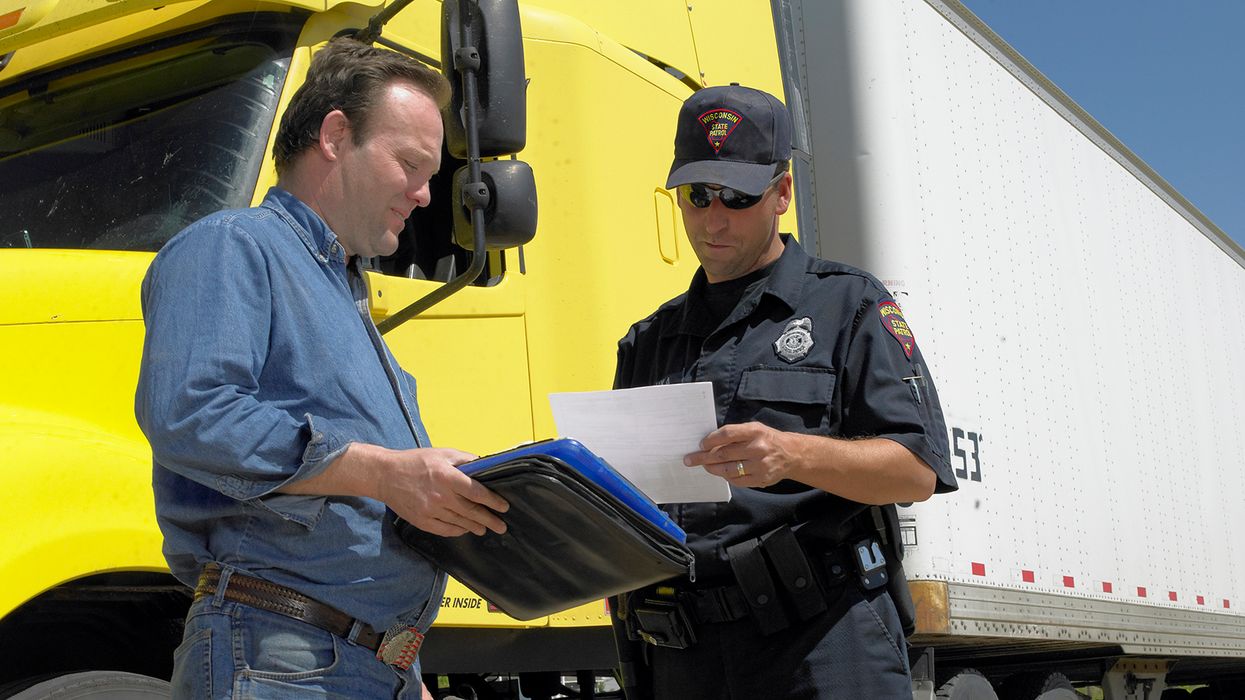FMCSA extends emergency exemption through June 14
An emergency exemption for truck and bus drivers assisting with the COVID-19 pandemic relief efforts has been extended another month.
The exemption was first issued on March 13, 2020, and was last due to expire on May 15. That deadline has now been extended until 11:59 P.M. on June 14, 2020.
Under the emergency declaration, motor carriers and drivers providing direct assistance in support of relief efforts related to the COVID-19 outbreak are not required to comply with Parts 390 through 399 of the Federal Motor Carrier Safety Regulations. This includes rules covering hours of service, vehicle inspections, and driver qualification, among others.
The latest extension does not change any of the conditions or restrictions that were in effect under the prior version of the exemption, as outlined below.
What is direct assistance?
Direct assistance means transportation and other relief services provided by a motor carrier or its drivers related to the immediate restoration of essential services, such as medical care, or essential supplies like food or disinfectants. Specifically, it includes transportation to meet immediate needs for the following:
- Medical supplies and equipment related to the testing, diagnosis, and treatment of COVID-19;
- Supplies and equipment necessary for community safety, sanitation, and prevention of community transmission of COVID-19, such as masks, gloves, hand sanitizer, soap, and disinfectants;
- Food, paper products, and other groceries for emergency restocking of distribution centers or stores;
- Immediate precursor raw materials – such as paper, plastic, or alcohol – that are required and to be used for the manufacture of essential items;
- Fuel;
- Liquefied gases to be used in refrigeration or cooling systems;
- Equipment, supplies, and persons necessary to establish and manage temporary housing, quarantine, and isolation facilities related to COVID- 19;
- Persons designated by federal, state or local authorities for medical, isolation, or quarantine purposes; and
- Persons necessary to provide other medical or emergency services.
Direct assistance does not include routine commercial deliveries. Also, it does not include transportation of mixed loads with a nominal quantity of qualifying emergency relief added to obtain the benefits of the emergency.
Direct assistance ends when a driver or commercial motor vehicle (CMV) is used in interstate commerce to transport cargo or provide services that are not in support of emergency relief efforts or when the motor carrier dispatches a driver or CMV to another location to begin operations in commerce.
A driver who provides relief assistance may travel back to his or her terminal with an empty CMV under the exemption.
Compliance with some regs still required
Drivers and motor carriers operating under this exemption must continue to comply with the commercial driver's license, drug and alcohol testing, financial responsibility (insurance), hazardous materials, and size and weight requirements.
The FMCSA's emergency declaration says drivers and carriers must also comply with:
- All applicable state laws and regulations, including speed limits and other traffic restrictions; and
- 49 CFR §392.3, which prohibits the operation of a CMV while the driver is too ill or fatigued to drive safely.
The declaration also includes a need to provide drivers with rest upon completion of their relief efforts.
Crash reporting
Finally, the declaration requires motor carriers to report any recordable crashes involving exempt drivers to the FMCSA office in the state where the carrier is based. The notification must be made by phone or in writing within 24 hours and include the date, time, location, driver, vehicle identification, and brief description of the crash.
Note that the emergency declaration will be revoked before June 14 if the Trump administration revokes the national emergency before then.













































